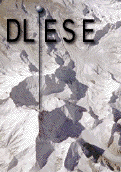-
Review processes and expectations for faculty accomplishment have a strong cultural component that is rooted in the academic backgrounds of the senior faculty, upper administration, and history of each institution. ARTF must be viewed in the same dispassionate way as an editorial board of a scientific journal or the review panel of a federal funding agency.
ARTF will not become an advocate for promoting changes in a local culture nor will it promote the library by evolving into a marketing function.
ARTF will provide input to the Collections Committee and the Steering Committee regarding the perceptions of faculty and administrators of proposed review processes by January 2001 and will go out of business at that time.
Of necessity, ARTF must work closely with those involved in devising the assessment, evaluation and selection processes. Members of ARTF have been selected to provide a broad and cross-cutting panel.
Bryan L. Aivazian, Science Teacher
Wyoming Center for Problem Based Learning, DLESE Steering Committee
Tom Boyd, Colorado School of Mines, DLSE Technology Committee Chair
John C. Butler, University of Houston
Warren Huff, University of Cincinnati
Kim Kastens, Columbia University,
DLESE Collections Committee Chair
Charles Kluth, Chevron, San Ramon, CA
Charlie McClennen, Colgate University
Heather McDonald, College of William and Mary
Bill Prothero, University of California at Santa Barbara , DLESE Users Committee Chair
Mohan Ramamurthy, University of Illinois, DLESE Services Chair
Randy Richardson, University of Arizona
Steve Semken, Dine College
The Collections Committee now has a web page with connections to appropriate documents.
ARTF believes that the development of resources accepted for inclusion in DLESE is evidence, at a minimum, of successful engagement in Denning's (1999) research (2), teaching and service.
Denning (The Leading Edge, 1997, 1014) recognizes four types of research that can produce innovations -- changes in the way a community works:
Gathering Input From The Geosciences Community (1) generating new ideas;
In the first type of research (1) emphasis is placed on originality and novelty with grantsmanship and peer reviewed publication serving as a certification of both. A faculty member is practicing the second kind of research (2) when she/he offers new ways to think about, understand, and be competent in a subject. The emphasis of research (2) is on "understanding that produces competence". Denning notes that "a large number of faculty are expertly practicing the second kind of research while under the illusion that they are engaging in the first - and not getting credit for either."
(2) generating new practices;
(3) generating new products; and
(4) generating new business.
Several surveys have been drafted rather than attempting a "one size fits all" approach. You may download copies of the survey results.
Power Point Presentation - University of Montana Meeting, July 1, 2000
